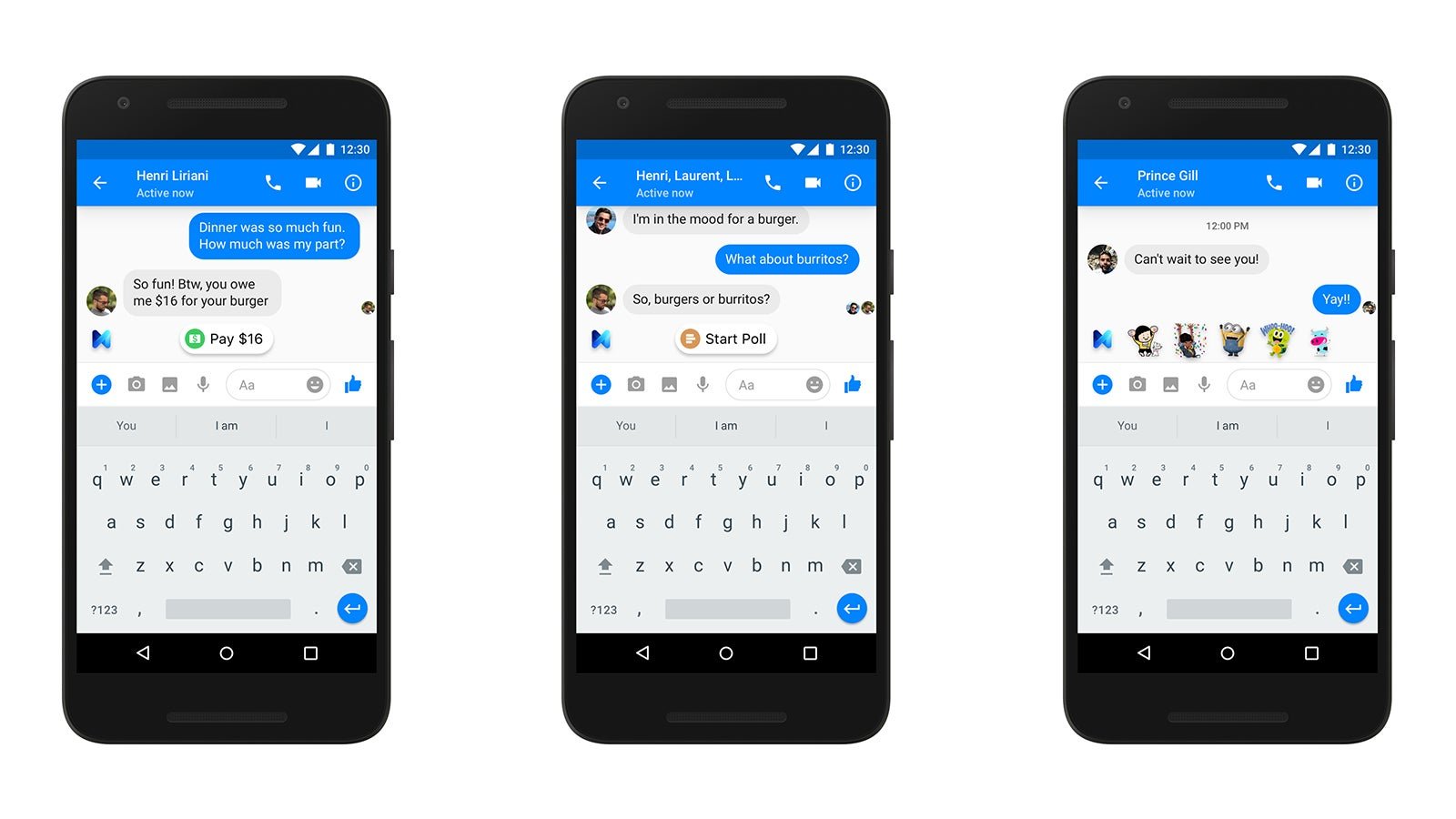The public debut of Facebook’s M is a tiny step toward a do-it-all AI assistant
Facebook announced today that its virtual assistant, M, will be available to US users to make suggestions within users’ conversations for a limited number of functions.


Facebook announced today that its virtual assistant, M, will be available to US users to make suggestions within users’ conversations for a limited number of functions.
M will analyze each of your messages to detect whether you’re looking to send a sticker, request or send money, get a ride, or share your location, as well as start a poll if you’re in a group chat. If so, a button will pop up to automatically suggest a sticker or help with those other actions.
First announced in August 2015, M promised to fulfill the role of a true personal assistant with the ability to complete tasks on other websites and services.
“The idea was always that we’d take M—Big M—that does everything for a very small group of people and then we’re going to learn,” Stan Chudnovsky, head of product for Messenger, told Quartz. “Eventually where we end up is in a place where we’re going to pick up certain things that we can do very, very well, and enable them for everybody, and that’s what M suggestions are.”
The first publicly-available M features are a far cry from what Facebook VP of messaging products David Marcus described more than a year and a half ago: “Unlike other AI-based services in the market, M can actually complete tasks on your behalf. It can purchase items, get gifts delivered to your loved ones, book restaurants, travel arrangements, appointments and way more.”
Facebook’s original design for M was to use human trainers to help the AI interact with a small batch of Facebook users in the Bay Area. If the AI failed to order flowers or book a restaurant, a human would take over, and the machine would theoretically learn how to do the task from their actions.
Laurent Landowski, a product manager for Messenger hired by Facebook when his previous company, Wit.ai, was acquired to bootstrap M, says the original M test is still going on, but this version of the virtual assistant was a way to take some of the things they learned and give them to all Messenger users.
“We wanted to start trying to be super-helpful where [users] are, in their day-to-day conversations,” Landowski told Quartz. “This version of M will help you in your conversation with your friends.”
To put it simply, using humans as a crutch for the do-it-all AI doesn’t work when considering the 1 billion people using Facebook Messenger every month. And training AI to be useful to the general populous for a wide range of functions is likely to take a long time with lots of trial and error. Chudnovsky emphasized that while the features announced today seem simple, they’re actually quite sophisticated. They’re designed to be noninvasive and will only appear “if the chances are really, really high that you’d pick [the suggestion] up.”
The M features available now are about making it easier to use services that are either already connected to Facebook or existing within Messenger, rather than completing outside tasks. Landowski stresses that this is only the first version available, and that M is an evolving product.
But the language used to describe the virtual personal assistant’s origins has changed. In Marcus’ original 2015 post, he wrote M was “a new service” that was “powered by artificial intelligence that’s trained and supervised by people.” Facebook’s blog post today writes that M started as “a small AI experiment powered by humans,” language echoed by Landowski in the interview.
When I spoke to Alex Lebrun, founder of Wit.ai, for Popular Science in 2015 shortly after his company was acquired by Facebook, he said the whole point of M was to provide a digital virtual assistant that could handle atypical requests, and not be relegated to the simplest use-case.
“The true added value of a service like M is to be able to fulfill your request even if it’s a little bit specific or weird,” Lebrun said at the time. In previously unpublished quotes, he continued: “We cannot say, ‘We will do [plane] tickets, but only the simple ones,’ because then the original mission of M is not there anymore. We want to do everything.”